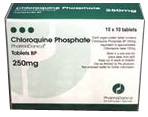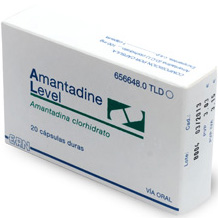Drug Overview
Methotrexate is a widely acknowledged antimetabolite agent, categorized within a class of medications identified as disease-modifying antirheumatic drugs (DMARDs), with a broad therapeutic application in the management of certain cancers and autoimmune conditions. Its versatile use is underpinned by its ability to inhibit cell growth, which is beneficial for controlling rapidly dividing cells.
Therapeutic Indications
It serves a pivotal role in the management of several malignancies, including leukemia, breast cancer, lung cancer, and certain types of head and neck cancers. Its application extends to autoimmune diseases such as rheumatoid arthritis and psoriasis, where it helps to reduce inflammatory responses and slow disease progression.
Available Preparations
Methotrexate is accessible in various forms to suit different clinical needs and administration routes. These preparations include oral tablets, a ready-to-use injection solution, and a concentrated injection for dilution. Additionally, it can be obtained as a subcutaneous injection or given intramuscularly, depending on the specific treatment requirements.
Proper Use Instructions
Administration guidelines for Methotrexate are highly individualized, sprawled across a spectrum of dosing regimens pegged on the medical condition being treated. Initial doses and subsequent adjustments should adhere to a physician’s expertise. Periodic lab evaluations are necessary to tailor the dosing accurately and minimize potential toxicity. It is imperative to follow the physician’s advice on frequency and timing when taking Methotrexate.
Medical Restrictions
Methotrexate is contraindicated in patients who exhibit hypersensitivity to the drug, as well as those with severe renal impairment, liver disease, blood disorders, or those who are concurrently undergoing radiotherapy. Those with excessive alcohol consumption or who have pre-existing hematologic disorders should avoid the use of Methotrexate.
Important Safety Considerations
Caution is imperative with Methotrexate administration due to potentials for serious, sometimes fatal, side effects. Patients should be apprised of the risks of myelosuppression, hepatotoxicity, pneumonitis, and mucositis. Moreover, it may potentially lead to teratogenic effects; hence, it is critical for patients to discuss family planning with healthcare providers prior to starting therapy.
Potential Concomitant Effects
Combining Methotrexate with other medications can alter its efficacy or increase the risk of adverse reactions. Concurrent use with non-steroidal anti-inflammatory drugs (NSAIDs), certain antibiotics, and oral antidiabetics requires careful monitoring and may necessitate dosage adjustments. Always consult with healthcare providers before initiating or stopping any concurrent medication.
Possible Side Effects
The spectrum of adverse reactions ranges from mild to severe. Frequent side effects include nausea, vomiting, and stomatitis. Potentially severe side effects encompass hepatotoxicity, pulmonary toxicity, and hematologic abnormalities. It is essential for patients to immediately report any unusual symptoms or exacerbation of side effects to their healthcare providers.
Excessive Consumption Effects
Overdose of Methotrexate can result in acute toxic reactions including bone marrow suppression, gastrointestinal toxicity, and renal impairment. In the event of an overdose, supportive care and interventions such as folinic acid rescue, hydration, and alkalinization of urine are imperative to mitigate adverse effects.
Drug Mechanism and Actions
Methotrexate exerts its therapeutic effect by inhibiting the enzyme dihydrofolate reductase, leading to suppression of DNA synthesis and cell replication. Its anti-inflammatory properties in autoimmune diseases are attributed to its inhibitory action on the immune response, which contributes to reduced inflammation and tissue damage.
Drug Absorption and Distribution
The pharmacokinetic profile of Methotrexate includes rapid absorption, especially in the oral form, with peak plasma concentrations typically occurring within one to two hours post-ingestion. Methotrexate is distributed widely in body tissues and fluids; its polyglutamate forms ensure prolonged retention in cells, thus extending its therapeutic actions.
Required Assessments
Regular monitoring through laboratory tests is critical for patients on Methotrexate therapy. Baseline assessments and periodic follow-ups encompass complete blood counts, liver function tests, renal function tests, and chest X-rays. These checks assist in detecting early signs of toxicity and guiding treatment adjustments.
Safety During Reproduction
Methotrexate carries high-risk teratogenic effects and is therefore contraindicated during pregnancy and lactation. Women of childbearing potential should employ reliable contraception methods during treatment and for a duration post-therapy as advised by their healthcare provider.
Administration in Children
Children receiving Methotrexate for juvenile idiopathic arthritis or pediatric malignancies require specialized dosing and monitoring. Dosage in the pediatric population is adjusted according to body surface area, and the emphasis is laid on close monitoring for early detection of adverse events.
Considerations for Elderly Patients
Older patients treated with Methotrexate might exhibit heightened sensitivity to its effects and side effects. Dose selection for an elderly patient should be cautious, reflecting the greater frequency of decreased hepatic, renal, or cardiac function, as well as concomitant disease or other drug therapy.
Proper Medication Storage
To ensure Methotrexate maintains its efficacy, it should be stored at room temperature, shielded from light and moisture. Injectable solutions should be kept refrigerated and discarded if not used within the stipulated time. Patient medications should be safely kept out of reach from children and pets.
Information for Patients
Healthcare providers should counsel patients on the correct administration of Methotrexate and the importance of adhering to prescribed dosages. Patients should be educated on recognizing potential side effects and the significance of prompt reporting of any concerning symptoms. Additionally, the importance of regular monitoring with lab tests should be stressed.
Comprehensive Information
This medication guide aims to deliver an exhaustive overview of Methotrexate, but it is not a substitute for personalized medical advice. Patients should consult their healthcare provider for specific guidance tailored to their health status and treatment objectives.
Cited Sources for Further Reading
The information pertaining to Methotrexate within this guide draws from a myriad of peer-reviewed journals, licensed pharmacopeias, and medical associations’ publications. For an expansive understanding of Methotrexate’s usage, mechanisms, and safety, individuals are encouraged to review additional scientific literature and consult with healthcare practitioners.





Reviews
There are no reviews yet.